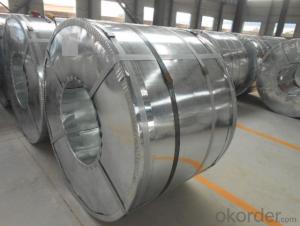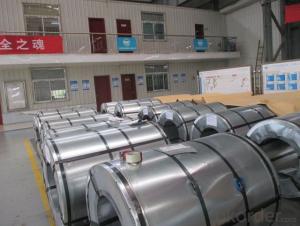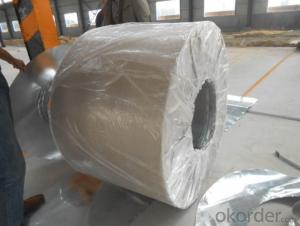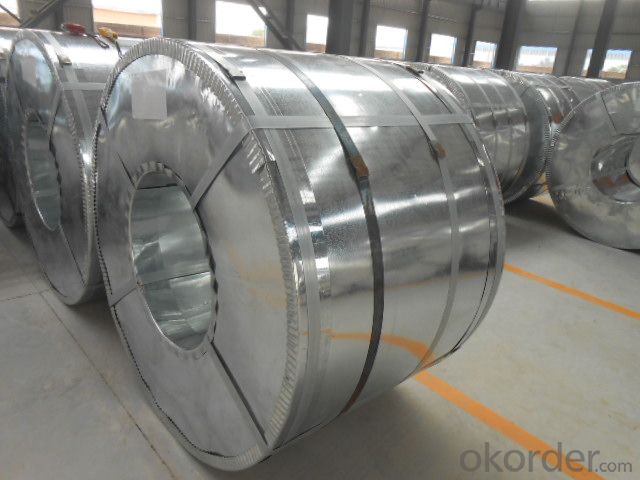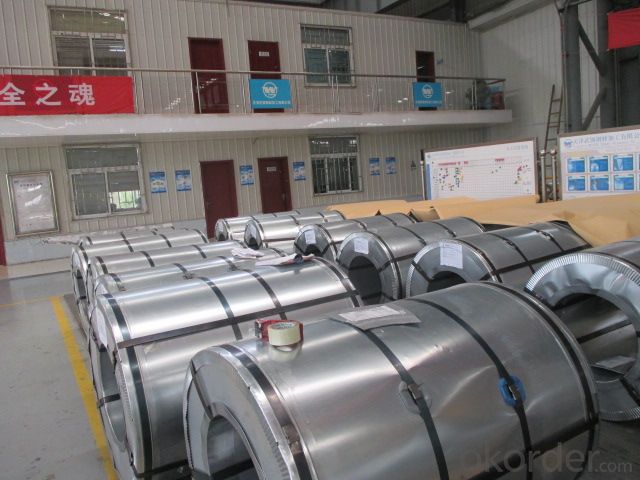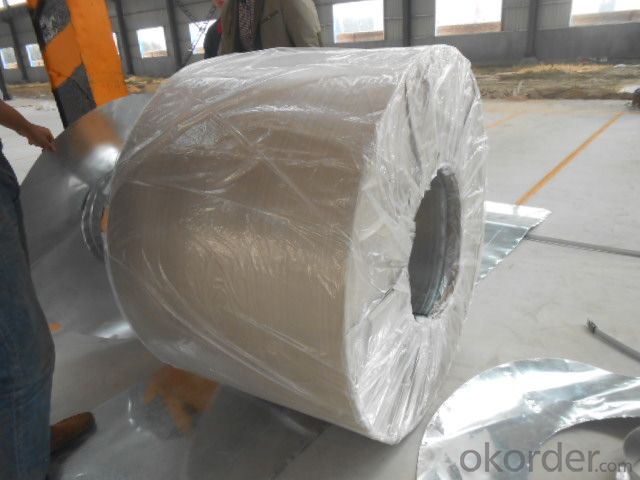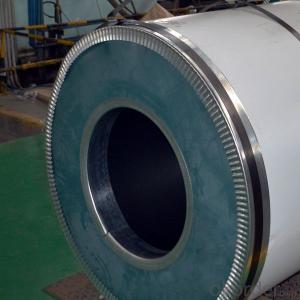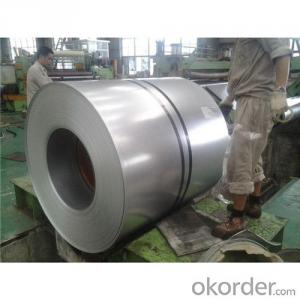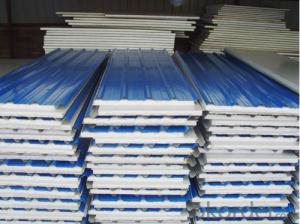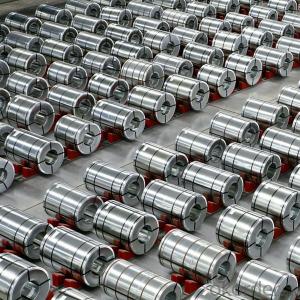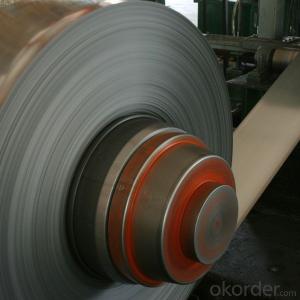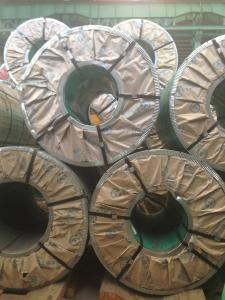STAINLESS STEEL COILS Grade: J1 , Prime quality
- Loading Port:
- Qingdao
- Payment Terms:
- TT OR LC
- Min Order Qty:
- 50 m.t.
- Supply Capability:
- 20000 m.t./month
OKorder Service Pledge
OKorder Financial Service
You Might Also Like
STAINLESS STEEL COILS
Packaging & Delivery
Packaging Detail: seaworthy export package
Delivery Detail: on request
Specifications
1. more than 10 years’ experience on this field
2. advanced equipments
3. competitive price
4. soonest delivery
Product Description :
Commodity
STAINLESS STEEL COILS
Technical Standard: Steel Grade & Standard:J1
Surface Treatment:NO.1
Hot rolled Annealed and Pickled(HRAP)
Grade: J1 , Prime quality
Mill Edge. No connection point in each coil. Component: Ni:1% , Cu: 0.65-0.9%, Cr: 13%, Mn: 10–12%, C: 0.09-0.12%
Package: Properly packed for ocean freight exportation in 20''container
Application:: home appliances, constructions, building, machineries
Our Advantages :
1. Expertise:
More than 10 years of manufacture: we know how to properly handle every step of production.
2. Competitive price:
We can offer competitive prices to our customers.
3. Accuracy:
We have excellent technicians and leaders, which can ensure our products are exactly what you want.
4. Materials:
All steel coils are made of high-quality raw materials.
5. Certificate:
Our products are certified by ISO9001.
6. Productivity:
We have large-scales of production lines,, which can guarantee all your orders will be finished in earliest time.
The furnace heating style: improved Sendzimir heating technology
Hourly output: max.76.3t/h
Process after coating: tension leveling, Passivation or oiling
Our Service
Our quality
Test Equipments of Prepainted Galvanized Steel Coil : Salt-spray tester; Atomic absorption spectrophotometer; Rockwell typer hardness tester; Tensile test machine; Metrohm titration; Laboratory Bend test machine.
Our packing
Properly packed for ocean freight exportation in 20''container, galvanized metal fluted rings on inner and outer edges, galvanized metal & waterproof paper wall protection disk, galvanized metal & waterproof paper around circumference.
R&D department
R&D department concentrates on researching and developing reliable products with best quality. The quality department test and control every process of production to guarantee the best quality of product
- Q: I have never owned a non-stainless steel chef's knife and have been looking at some to buy recently, but all of them have various degrees of wear and use. They say that the wear is normal for non-stainless steel knives, but how can I tell if it is too much wear, or if the blade is clean?
- Carbon steel chef's knives out perform stainless in every aspect except 1, care. You can't put them in a dishwasher. Wash, rinse and dry off. Do not keep them in a drawer filled with other kitchen stuff, rather, keep them in a cabinet or block. If it starts to rust you can use steel wool to clean them up, or fine grit sandpaper if you want to retain a fine finish. For your viewing pleasure, a chef's knife I forged from crane cable.
- Q: How are steel coils used in the production of aerospace parts?
- Due to their strength, durability, and versatility, steel coils find extensive use in the aerospace industry for the production of aerospace parts. Made from high-quality carbon steel, these coils are formed into a coil shape, facilitating their transportation and storage. In the aerospace sector, steel coils play a crucial role in manufacturing different components, including structural parts, engine parts, landing gear, and fasteners. Specifically, steel coils are extensively employed in the fabrication of aircraft frames and fuselage structures. These coils are often cut, shaped, and welded to create the necessary structural components, which contribute to the aircraft's strength and stability. Another significant application of steel coils in aerospace production is the manufacturing of engine parts. Complex shapes are formed from the processed steel coils to produce components like turbine blades, shafts, and casings. These components must withstand high temperatures, pressure, and stress, and steel coils possess the requisite strength and heat resistance for such demanding applications. Furthermore, steel coils find utility in the production of landing gear, which supports the aircraft during takeoff, landing, and ground operations. The processed steel coils are shaped into various parts of the landing gear system, including struts, beams, and brackets. These components undergo rigorous testing and require excellent strength, toughness, and fatigue resistance, all of which are provided by steel coils. Additionally, steel coils are commonly employed in the manufacturing of fasteners essential for aerospace applications. Bolts, screws, and rivets play a crucial role in joining different components together, ensuring structural integrity and safety. Steel coils are processed and formed into the desired shapes for these fasteners, offering the necessary strength and reliability for these critical connections. In summary, steel coils are indispensable in the production of aerospace parts due to their exceptional mechanical properties and reliability. Their versatility enables various shaping and processing techniques, allowing for the creation of complex and high-performance components. By incorporating steel coils into aerospace manufacturing, the industry can ensure the production of durable, safe, and efficient aircraft.
- Q: Suppose you made a sword out of diamond (just follow me here, it's only theoretical). Would it be lighter than a sword of the same size made out of steel?
- Diamond has half the density of steel but would make a terrible sword because it is not very tough. Toughness is a material's ability to resist breakage from forceful impact: Diamond has a toughness of 2.0 MPa·m1/2 and has a critical stress intensity factor of 3.4 MN·m?3/2. That makes it tough for a gem but are poor compared with steels. Plus diamond has a cleavage plane.
- Q: What are the dimensions of a typical steel coil?
- The dimensions of a typical steel coil can vary depending on the manufacturer and specific application, but common dimensions include thicknesses ranging from 0.015 inches to 0.5 inches, widths between 24 inches and 72 inches, and coil weights ranging from a few thousand pounds to over 50,000 pounds.
- Q: I wanna strip down my bike and take off all the paint... im thinking of leaving it just the steal color... Do i need to put anythinng on the steel to coat it or can i just leave it like that... Will it rust or anything?
- If it's stainless steel or aluminum, it won't rust. Chances are the bike parts that have been painted are of metals that will rust. If you like the metal color, then you can get paints that look like metal or you can clear coat it. You might want to consider just a grey primer.
- Q: What are the common methods of cutting steel coils?
- The common methods of cutting steel coils include shearing, slitting, and laser cutting. Shearing involves using a machine with two blades to cut through the coil. Slitting involves passing the coil through a set of rotating circular blades to create narrower strips. Laser cutting uses a high-powered laser beam to cut through the steel coil with precision.
- Q: What are the common applications of pre-painted galvanized steel coils?
- Pre-painted galvanized steel coils have a wide range of common applications. They are commonly used in the construction industry for roofing, siding, and cladding applications due to their durability, corrosion resistance, and aesthetic appeal. These coils are also used in the automotive industry for manufacturing various parts and components. Additionally, pre-painted galvanized steel coils are utilized in the manufacturing of appliances, furniture, and storage systems.
- Q: How are steel coils used in the petrochemical industry?
- Steel coils are commonly used in the petrochemical industry for various purposes such as manufacturing pipes, tanks, and equipment used in the processing and transportation of petrochemical products. The coils are typically formed into specific shapes and sizes to meet the industry's requirements, ensuring structural integrity and resistance to corrosion. These steel components play a critical role in maintaining the safety and efficiency of petrochemical operations.
- Q: Can steel coils be coated with electrically conductive materials?
- Yes, steel coils can be coated with electrically conductive materials.
- Q: What is the tensile strength of a steel coil?
- The tensile strength of a steel coil can vary depending on the specific grade and composition of the steel, but it is typically quite high. Steel coils are designed to withstand significant pulling or stretching forces without breaking, making them suitable for various industrial applications.
Send your message to us
STAINLESS STEEL COILS Grade: J1 , Prime quality
- Loading Port:
- Qingdao
- Payment Terms:
- TT OR LC
- Min Order Qty:
- 50 m.t.
- Supply Capability:
- 20000 m.t./month
OKorder Service Pledge
OKorder Financial Service
Similar products
Hot products
Hot Searches
Related keywords
